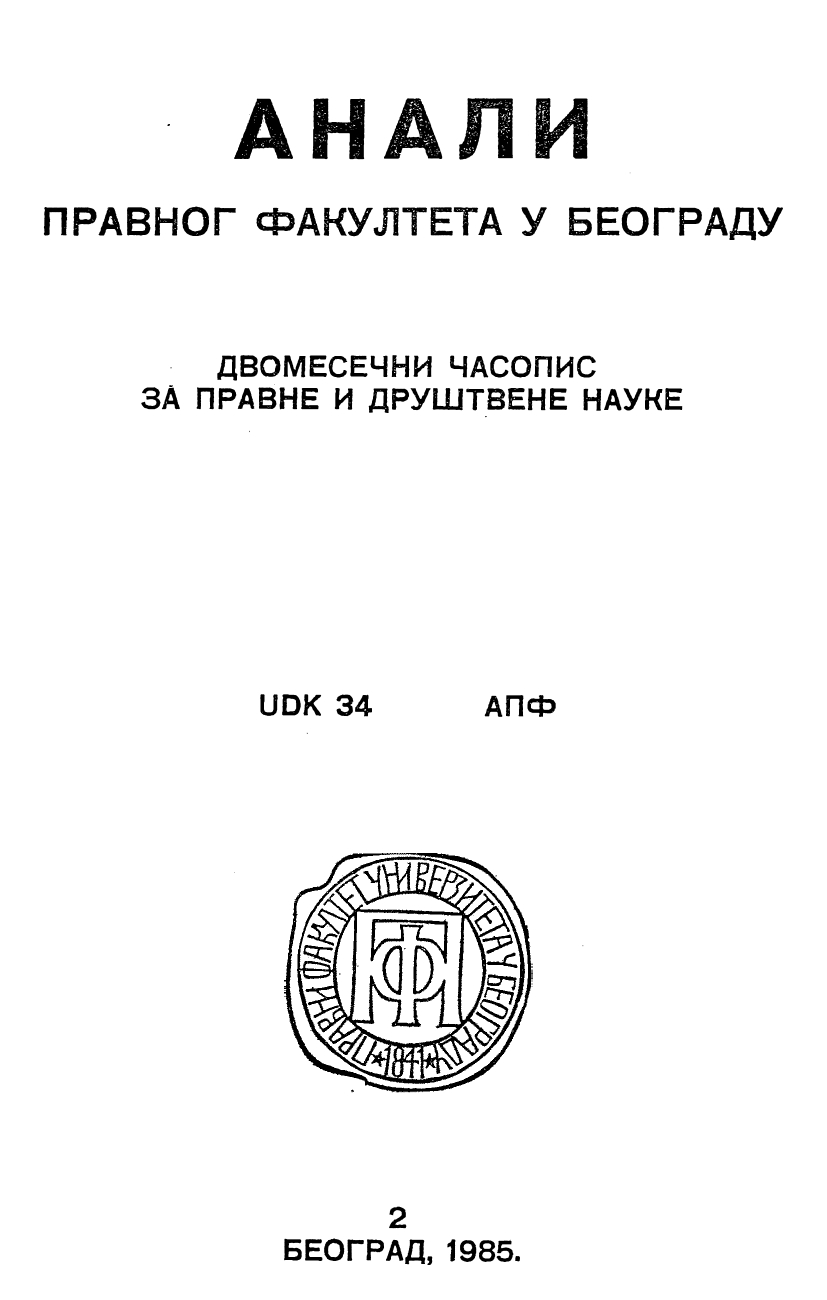САВЕСНОСТ И ПОШТЕЊЕ КАО СОЦИЈАЛНИ КОРЕКТИВ У САВРЕМЕНОМ ГРЧКОМ ГРАЂАНСКОМ ПРАВУ
CONSCIENTIOUSNESS AND HONESTY AS A SOCIAL CORRECTIVE IN CONTEMPORARY GREEK CIVIL LAW
Author(s): Mihail StatopoulosSubject(s): Law, Constitution, Jurisprudence, History of Law, Civil Law
Published by: Правни факултет Универзитета у Београду
Summary/Abstract: Greek Civil Code, while regulating contractual relations, begins from the principle of freedom of entering into contract, namely from the one of »solus consensus obligat«. This principle presupposes the equality of contracting parties, which today often does not exist. The equality in rights of contraction parties is sometimes ensured by means of special laws, but this is not always possible. Social interests are therefore in most cases effected by using the general clauses of the Civil Code. Among these clauses most significant and most numerous in terms of cases in practice is the principle of conscientiousness and honesty (article 288 of the Code. Although defining the notion of this principle does not help very much, one may say that it includes scrupulousness and correctness which should prevail in trade, but also in society at large, namely in the ruling conceptions of equity. The principle of conscientiousness and honesty has two functions, namely: complementary, i.e. to complement insufficient statutory or contractual regulation of an obligation relationship, and a corrective one, which leads to the departure of the original contractual or statutory regulation of tire obligation. Several cases of application of this principle have been established in the practice. Firstly, in addition to the principal obligation, the debtor is burdened by some other duties, for instance, the duty of complete informing the creditor. Secondly, the application of this principle may amount to change of the obligation, for instance in case of great inflation and devaluation of money. In other words, the court is vested with the possibility to assess whether the obligation should be met at all, for example if the discharging would exceed all economic possibilities of the debtor. Most radical situation is the creation of an entirely new obligation by implementing the principle of conscientiousness and honesty. This is, for instance, a case of a contracting party behaving wilfully in course of negotiations against the principle of conscientiousness and honesty. In such a. case he may create himself a duty of compensating the relevant damage. The principle of conscientiousness and honesty is applied also in case of other sources of obligations. Thus, for instance, in applying tire rules of the Greek Civil Code according to which the condition for existing of a duty to compensate damage is the unlawfulness of the action of the damage- -feasor it is considered that such a duty is taking effect if by such an action the above principle has been violated. In the concluding lines, the author stresses that the general clauses by means of which the freedom of entering into contract is limited — such as the ones concerning the principle of conscientiousness and .honesty, — are characterized by flexibility.. It is true, that they, to some degree, may lead to legal incertainty, but their application realizes even more valuable principles of legal order such as equity and interests of the society at large.
Journal: Анали Правног факултета у Београду
- Issue Year: 33/1985
- Issue No: 2
- Page Range: 212-223
- Page Count: 12
- Language: Serbian

